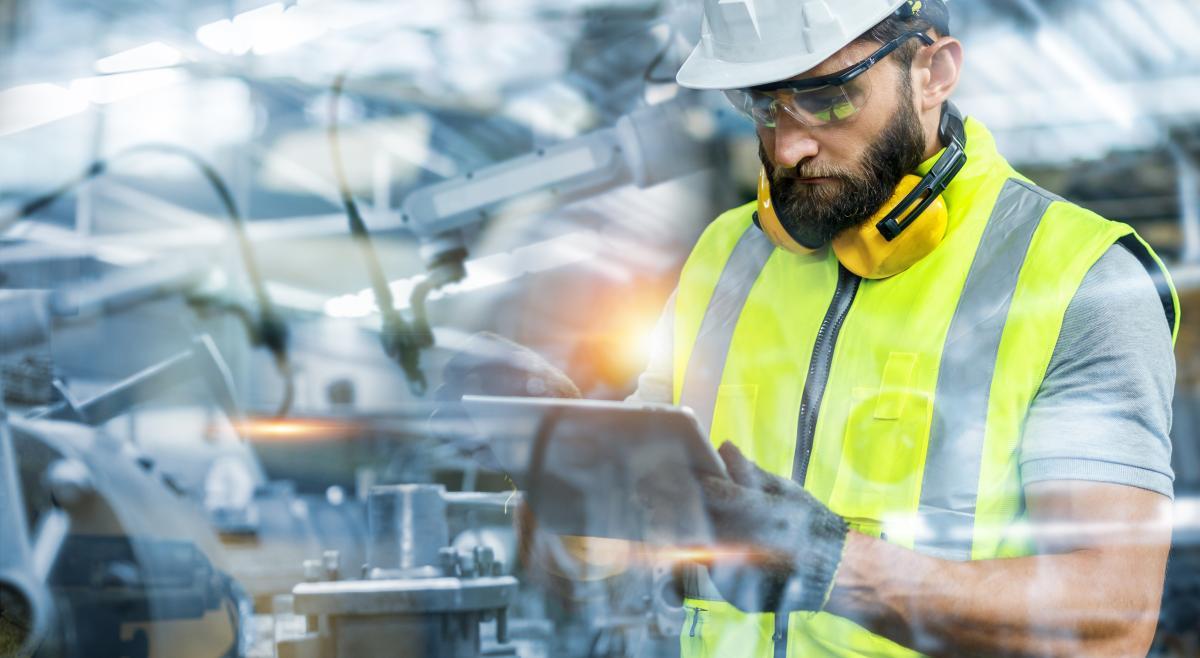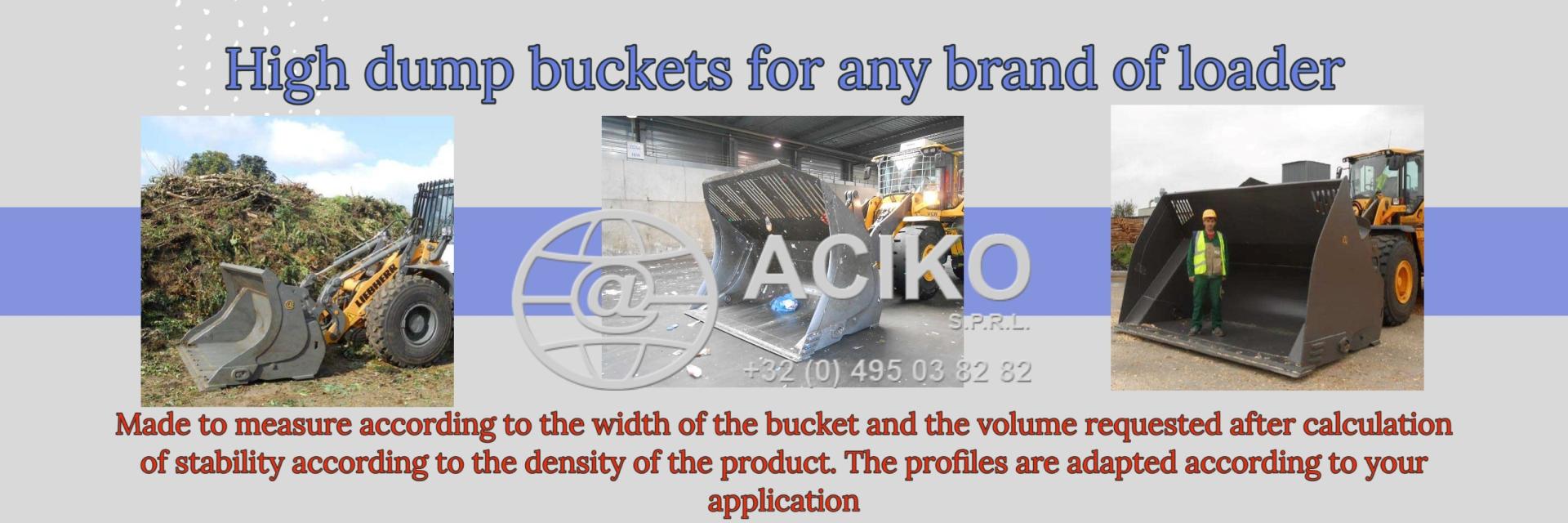R.E.News future Technology-ATLAS COPCO-Seven Ways Tech Is Turbocharging Warehouses, Factories
 05/07/24-FR-English-NL-footer
05/07/24-FR-English-NL-footer
ATLAS COPCO-Sept façons dont la technologie turboalimente les entrepôts et les usines
 Photo courtesy of Atlas Copco
Photo courtesy of Atlas Copco
Dans le monde en constante évolution de l’innovation technologique, l’industrie manufacturière est à l’avant-garde de la transformation numérique.
Les entreprises s'orientent vers des usines plus intelligentes et des entrepôts plus efficaces en intégrant un réseau d'appareils, de machines et de systèmes de production interconnectés. Ce grand changement, motivé par la nécessité d'une collaboration transparente, d'une meilleure accessibilité des données et d'une efficacité opérationnelle accrue, exige que les entreprises maîtrisent les principes fondamentaux et les applications pratiques qui peuvent améliorer considérablement leurs opérations.
L’adoption de l’intelligence artificielle (IA) dans le secteur manufacturier redéfinit l’assurance qualité. Imaginez un système dans lequel des algorithmes avancés et l’apprentissage automatique examinent de vastes ensembles de données pour identifier les anomalies sur la chaîne d’assemblage avec une précision extrême.
Dans l'usine d'Atlas Copco à Anvers, par exemple, des inspections visuelles basées sur l'IA garantissent que chaque produit respecte des normes d'assemblage strictes. La détection précoce des erreurs réduit le gaspillage, limite les retouches et maintient l'intégrité du produit, améliorant ainsi la qualité globale et la satisfaction du client.
Donner aux équipes d’assemblage les moyens d’agir grâce à la formation numérique
Dans le paysage manufacturier actuel, les équipes ont besoin d'un spectre de connaissances plus large pour assembler efficacement les produits. Contrairement à il y a dix ans, les solutions numériques fournissent désormais un soutien inestimable face à la plus grande diversité et complexité des produits d'aujourd'hui.
Atlas Copco s'inscrit dans cette évolution en équipant les travailleurs de ressources numériques adaptées à chaque produit. Grâce à des instructions numériques et à une formation immersive via la réalité virtuelle (VR), les travailleurs sont guidés tout au long des processus d'assemblage avec une précision améliorée.
Cette approche dynamique améliore l'efficacité et augmente la qualité, tout en dotant les travailleurs des compétences nécessaires pour exceller dans l'environnement manufacturier moderne.
Faire équipe avec les « Cobots »
Rencontrez les cobots : des robots collaboratifs prêts à travailler aux côtés des équipes d'assemblage. Armés de capteurs et d’IA, les cobots sont rapidement devenus des alliés fiables dans le secteur manufacturier, partageant la charge de travail et augmentant la productivité.
Ces machines intelligentes assument des tâches répétitives ou physiquement exigeantes, tout en apportant une adaptabilité qui garantit des transitions fluides entre les opérations. Ils représentent un nouveau paradigme dans le secteur manufacturier, prouvant que l'automatisation peut améliorer le potentiel humain plutôt que de le remplacer ; et amener l’efficacité et l’innovation vers de nouveaux sommets grâce à la collaboration.
Améliorer la surveillance et le contrôle avec l'IoT
L’Internet des objets (IoT) est le pouls de l’industrie manufacturière moderne, collectant des quantités de données prêtes à être analysées par l’IA. Ces capteurs peuvent être intégrés dans des objets, des machines, des équipements et des infrastructures du quotidien pour surveiller et recueillir des informations en temps réel sur leur environnement ou leurs conditions de fonctionnement.
Atlas Copco exploite les connaissances de l'IoT pour affiner les processus de production et réduire les coûts ; En utilisant cette technologie très avancée, nous pouvons prendre des décisions basées sur les données, optimisant ainsi les opérations et alimentant la productivité.
Dans l’entreposage, les systèmes de gestion basés sur l’IA jouent un rôle central dans l’optimisation du contrôle des stocks et dans le maintien de l’agilité et de la réactivité des opérations. Ces systèmes automatisent des processus cruciaux tels que le suivi et la manipulation des matériaux, réduisant ainsi considérablement les risques de surstockage ou de rupture de stock. Grâce à son arsenal de systèmes internes sophistiqués pour garantir un stockage et un mouvement efficaces des matériaux, Atlas Copco dispose d'un contrôle détaillé de ses stocks, permettant une production continue sans coûts excédentaires.
Maintenance proactive
La maintenance basée sur l'IA prolonge la durée de vie des machines et garantit le bon déroulement des processus de production. La mise en œuvre d’une combinaison de systèmes d’analyse de données d’IA et de systèmes de vision d’IA réduit les perturbations opérationnelles et les coûts de maintenance, contribuant ainsi à des délais de production plus fiables.
Les systèmes intelligents de gestion de l’énergie sont essentiels à la transformation. En exploitant des données en temps réel, ces systèmes dévoilent des informations inestimables sur les modèles de consommation d'énergie, éclairant les domaines mûrs pour l'optimisation. Exemple concret : en tirant parti de l'analyse des données pour identifier et résoudre les inefficacités, la division Portable Air d'Atlas Copco a fait une transition audacieuse vers l'huile végétale hydrotraitée (HVO) dans les cellules de test et les laboratoires de son site d'Anvers ; soulignant le potentiel de transformation des initiatives basées sur les données.
Conclusion
À mesure que les technologies numériques évoluent, leur intégration dans la fabrication et l’entreposage est indispensable pour les entreprises qui souhaitent rester compétitives. En adoptant une culture de l’innovation, les entreprises peuvent exploiter le vaste potentiel de la transformation numérique ; tout en établissant les normes de l’industrie et en façonnant les futures tendances industrielles. Cette approche proactive répond non seulement aux demandes actuelles du marché, mais anticipe également les défis futurs, en visant un succès à long terme lors du franchissement de la frontière numérique.
NJC.© Infos ATLAS COPCO
------------------------------------------------------------------------------------------------------------------
 05/07/24-English
05/07/24-English
ATLAS COPCO-Seven Ways Tech Is Turbocharging Warehouses, Factories
 Photo courtesy of Atlas Copco
Photo courtesy of Atlas Copco
In the ever-evolving world of technology-driven innovation, the manufacturing industry stands at the forefront of digital transformation.
Companies are pushing towards smarter factories and more efficient warehousing by integrating a network of interconnected devices, machinery, and production systems. This big shift — driven by the need for seamless collaboration, improved data accessibility and enhanced operational efficiency — requires businesses to master the core principles and practical applications that can significantly elevate their operations.
The adoption of Artificial Intelligence (AI) in manufacturing is redefining quality assurance. Imagine a system where advanced algorithms and machine learning scrutinize extensive datasets to identify anomalies on the assembly line with pinpoint accuracy.
At Atlas Copco's factory in Antwerp for example, AI-driven visual inspections guarantee that each product adheres to strict assembly standards. Early detection of errors reduces waste, curtails rework and maintains product integrity, thereby boosting overall quality and customer satisfaction.
Empowering Assembly Teams With Digital Training
In today's manufacturing landscape, teams require a broader spectrum of knowledge to effectively assemble products. Unlike a decade ago, digital solutions now provide invaluable support with the bigger variation and complexity within products nowadays.
Atlas Copco embraces this evolution by equipping workers with digital resources tailored to each product. Through digital instructions and immersive training via virtual reality (VR), workers are guided through assembly processes with improved precision.
This dynamic approach enhances efficiency and increases quality, while empowering workers with the skills needed to excel in the modern manufacturing environment.
Teaming Up With ‘Cobots'
Meet the cobots — collaborative robots primed to work alongside assembly teams. Armed with sensors and AI, cobots have quickly become dependable allies across the manufacturing sector, sharing the workload and boosting productivity.
These clever machines shoulder repetitive or physically demanding tasks, while bringing an adaptability that ensures smooth transitions between operations. They represent a new paradigm in manufacturing, proving that automation can enhance human potential rather than replacing it; and driving efficiency and innovation to new heights through collaboration.
Enhancing Monitoring, Control With IoT
The Internet of Things (IoT) is the beating pulse of modern manufacturing, collecting troves of data ripe for AI analysis. These sensors can be embedded in everyday objects, machines, equipment and infrastructure to monitor and gather real-time information about their surroundings or operating conditions.
Atlas Copco taps into IoT insights to help fine-tune production processes and trim costs; using this highly advanced technology, can make data-driven decisions, optimizing operations and fuelling productivity.
In warehousing, AI-driven management systems play a pivotal role in optimizing inventory control and keeping operations nimble and responsive. These systems automate crucial processes such as tracking and handling of materials, significantly reducing the risks of overstocking or stockouts. Using its arsenal of sophisticated in-house systems to ensure effective storage and movement of materials, Atlas Copco has detailed control over its inventory, supporting continuous production without surplus costs.
Proactive Maintenance
AI-powered maintenance, extends machinery lifespan and ensures that production processes run smoothly. Implementing a combination of AI data analysis and AI vision systems reduces operational disruptions and maintenance costs, contributing to more reliable production timelines.
Smart energy management systems are crucial for transformation. By harnessing real-time data, these systems unveil invaluable insights into energy consumption patterns, illuminating areas ripe for optimization. Case in point: by leveraging data analytics to identify and address inefficiencies, Atlas Copco's Portable Air division made a bold transition to hydrotreated vegetable (HVO) oil in test cells and labs at its Antwerp facility; underscoring the transformative potential of data-driven initiatives.
Conclusion
As digital technologies evolve, their integration into manufacturing and warehousing is indispensable for companies aiming to remain competitive. By embracing a culture of innovation, businesses can reap the vast potential of digital transformation; while setting industry standards and shaping future industrial trends. This proactive approach not only meets current market demands but also anticipates future challenges, targeting long-term success when traversing the digital frontier.
NJC.© Info ATLAS COPCO
-------------------------------------------------------------------------------------------------------------
 05/07/24-NL
05/07/24-NL
ATLAS COPCO-Seven Ways Tech zorgt voor een turboboost in magazijnen en fabrieken
 Photo courtesy of Atlas Copco
Photo courtesy of Atlas Copco
In de steeds evoluerende wereld van technologiegedreven innovatie loopt de maakindustrie voorop in de digitale transformatie.
Bedrijven streven naar slimmere fabrieken en efficiëntere opslagplaatsen door een netwerk van onderling verbonden apparaten, machines en productiesystemen te integreren. Deze grote verschuiving – gedreven door de behoefte aan naadloze samenwerking, verbeterde toegankelijkheid van gegevens en verbeterde operationele efficiëntie – vereist dat bedrijven de kernprincipes en praktische toepassingen onder de knie krijgen die hun activiteiten aanzienlijk kunnen verbeteren.
De adoptie van kunstmatige intelligentie (AI) in de productie herdefinieert kwaliteitsborging. Stel je een systeem voor waarin geavanceerde algoritmen en machinaal leren uitgebreide datasets nauwkeurig onderzoeken om afwijkingen aan de lopende band met uiterste nauwkeurigheid te identificeren.
In de fabriek van Atlas Copco in Antwerpen garanderen AI-gestuurde visuele inspecties bijvoorbeeld dat elk product voldoet aan strenge assemblagenormen. Vroegtijdige detectie van fouten vermindert verspilling, beperkt herbewerking en handhaaft de productintegriteit, waardoor de algehele kwaliteit en klanttevredenheid worden vergroot.
Assemblageteams sterker maken met digitale training
In het huidige productielandschap hebben teams een breder spectrum aan kennis nodig om producten effectief te kunnen assembleren. In tegenstelling tot tien jaar geleden bieden digitale oplossingen nu ondersteuning van onschatbare waarde met de grotere variatie en complexiteit binnen producten van tegenwoordig.
Atlas Copco omarmt deze evolutie door werknemers uit te rusten met digitale hulpmiddelen die op maat zijn gemaakt voor elk product. Door middel van digitale instructies en meeslepende training via virtual reality (VR) worden werknemers met verbeterde precisie door montageprocessen geleid.
Deze dynamische aanpak verbetert de efficiëntie en de kwaliteit, terwijl werknemers de vaardigheden krijgen die nodig zijn om uit te blinken in de moderne productieomgeving.
Samenwerken met ‘Cobots’
Maak kennis met de cobots: collaboratieve robots die klaar zijn om samen te werken met montageteams. Gewapend met sensoren en AI zijn cobots snel betrouwbare bondgenoten in de productiesector geworden, waardoor de werklast wordt verdeeld en de productiviteit wordt verhoogd.
Deze slimme machines voeren repetitieve of fysiek veeleisende taken uit, terwijl ze een aanpassingsvermogen bieden dat zorgt voor soepele overgangen tussen operaties. Ze vertegenwoordigen een nieuw paradigma in de productie, wat bewijst dat automatisering het menselijk potentieel kan vergroten in plaats van het te vervangen; en het stimuleren van efficiëntie en innovatie naar nieuwe hoogten door samenwerking.
Verbetering van monitoring en controle met IoT
Het Internet of Things (IoT) is de kloppende pols van de moderne productie en verzamelt grote hoeveelheden gegevens die rijp zijn voor AI-analyse. Deze sensoren kunnen worden ingebed in alledaagse voorwerpen, machines, apparatuur en infrastructuur om realtime informatie over hun omgeving of bedrijfsomstandigheden te monitoren en te verzamelen.
Atlas Copco maakt gebruik van IoT-inzichten om productieprocessen te verfijnen en de kosten te verlagen; Met behulp van deze zeer geavanceerde technologie kunnen we datagestuurde beslissingen nemen, de bedrijfsvoering optimaliseren en de productiviteit verhogen.
In warehousing spelen AI-gestuurde managementsystemen een cruciale rol bij het optimaliseren van voorraadbeheer en het wendbaar en responsief houden van de activiteiten. Deze systemen automatiseren cruciale processen zoals het volgen en hanteren van materialen, waardoor de risico's van overbevoorrading of voorraadtekorten aanzienlijk worden verminderd. Met behulp van zijn arsenaal aan geavanceerde interne systemen om effectieve opslag en verplaatsing van materialen te garanderen, heeft Atlas Copco gedetailleerde controle over zijn voorraad, waardoor een continue productie zonder extra kosten wordt ondersteund.
Proactief onderhoud
AI-aangedreven onderhoud verlengt de levensduur van machines en zorgt ervoor dat productieprocessen soepel verlopen. Het implementeren van een combinatie van AI-dataanalyse en AI-visiesystemen vermindert operationele verstoringen en onderhoudskosten, wat bijdraagt aan betrouwbaardere productietijdlijnen.
Slimme energiebeheersystemen zijn cruciaal voor transformatie. Door gebruik te maken van realtime gegevens onthullen deze systemen waardevolle inzichten in energieverbruikspatronen, waardoor gebieden worden verlicht die rijp zijn voor optimalisatie. Een voorbeeld: door gebruik te maken van data-analyse om inefficiënties te identificeren en aan te pakken, heeft de divisie Portable Air van Atlas Copco een gedurfde overstap gemaakt naar met waterstof behandelde plantaardige olie (HVO) in testcellen en laboratoria in de vestiging in Antwerpen; het benadrukken van het transformatieve potentieel van datagestuurde initiatieven.
Conclusie
Naarmate digitale technologieën evolueren, is de integratie ervan in productie en opslag onmisbaar voor bedrijven die concurrerend willen blijven. Door een innovatiecultuur te omarmen kunnen bedrijven profiteren van het enorme potentieel van digitale transformatie; terwijl het industriële normen bepaalt en toekomstige industriële trends vormgeeft. Deze proactieve aanpak komt niet alleen tegemoet aan de huidige markteisen, maar anticipeert ook op toekomstige uitdagingen en richt zich op succes op de lange termijn bij het overschrijden van de digitale grens.
NJC.© Info ATLAS COPCO
-----------------------------------------------------------------------------------------------------------------
Date de dernière mise à jour : 04/07/2024
















